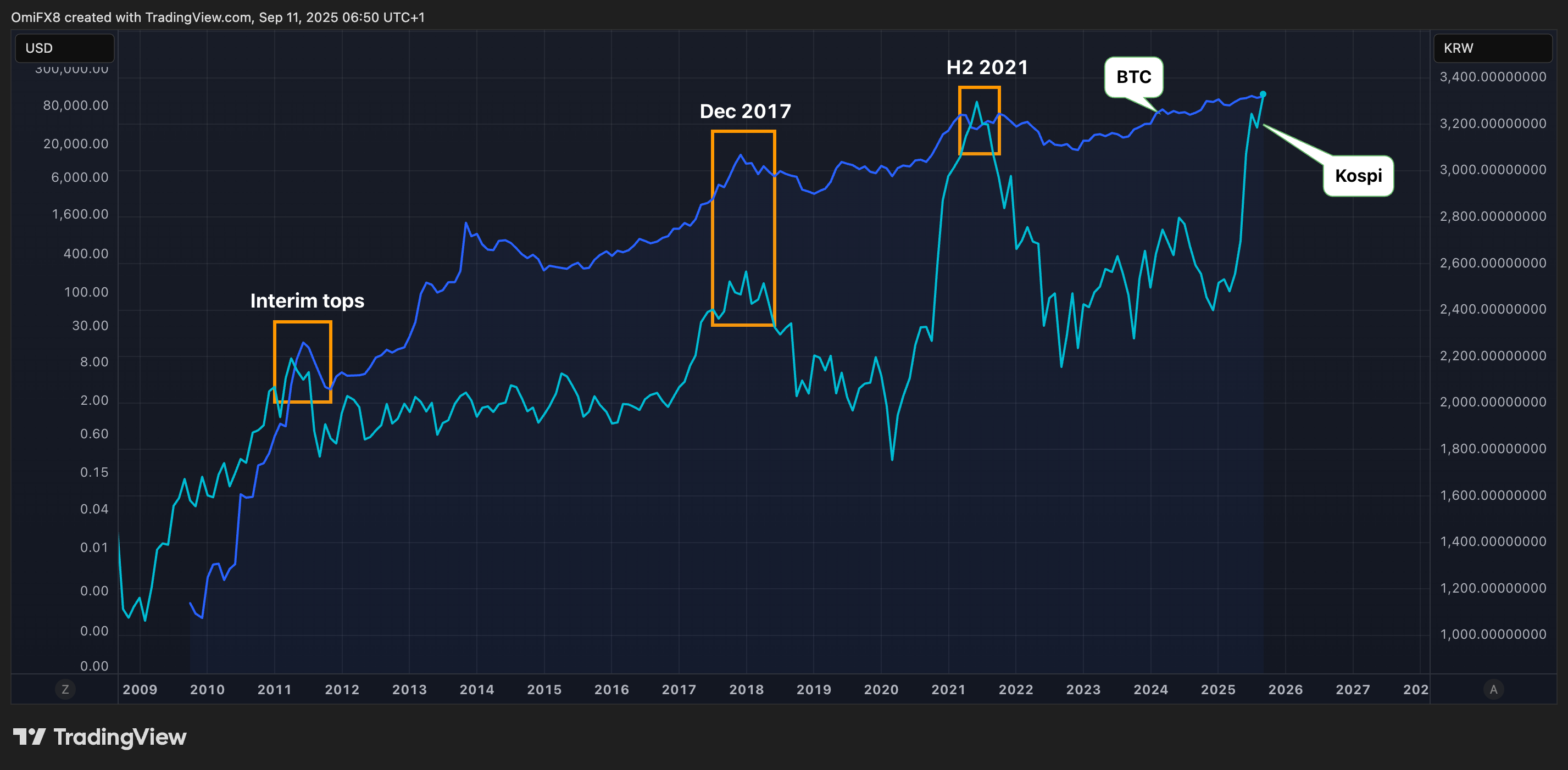Bitcoin Bulls Beware: South Korean Kospi’s Record Highs Could Derail BTC’s Bull Run, Warns Analyst
As Bitcoin charges toward new heights, a surprising challenger emerges from the East—South Korea's Kospi index just smashed through all-time highs, and one analyst says it might just throw cold water on crypto's parade.
Traditional Markets Flex Muscle
While digital asset enthusiasts cheer every BTC pump, conventional equities are staging a jaw-dropping rally of their own. The Kospi's relentless climb signals robust institutional confidence—and potentially siphons capital that might have flowed into speculative crypto plays.
Risk-On Sentiment Shifts
Investors chasing yield now face a tantalizing choice: pile into established blue-chips posting record gains, or gamble on volatile digital tokens. When traditional markets deliver these kinds of returns, even die-hard crypto advocates pause—after all, why bet the farm on decentralized magic internet money when old-school stocks are printing money? Classic finance, always finding a way to harsh the crypto vibe.
Bitcoin's momentum remains fierce, but in global finance, nothing kills a bull run like a better opportunity elsewhere.

The chart indicates that the Kospi reached its peak in the second half of 2021. BTC also peaked closer to $70,000 in November that year, eventually falling into a year-long bear market.
A similar pattern emerged in late 2017, with concurrent peaks in the two assets. Also note the concurrent interim tops around June and July 2011.
Incremental signal
The pattern, though limited to support definitive conclusions, warrants attention, as it underscores the shared sensitivity of Kospi and BTC to global risk-on/risk-off flows and shifts in investor risk appetite and macroeconomic conditions.
When risk sentiment is positive, capital flows into emerging market equities, such as the Kospi, which is heavily export-oriented and influenced by global trade dynamics, as well as into riskier assets like bitcoin.
Conversely, during periods of heightened uncertainty or risk aversion, both tend to decline together. This close relationship highlights how Bitcoin, despite its unique characteristics as a digital asset, is becoming increasingly intertwined with broader financial markets and subject to similar economic forces.
"Now that the Kospi has reached a new all-time high, it serves as yet another incremental signal that the bitcoin cycle may be nearing its conclusion. Smart money flows continuously between major economies, stores of value, risk assets, and—sometimes—extremely speculative instruments, like memecoins, often without fundamentals," Joao Wedson, founder and CEO of Alphractal, said.

